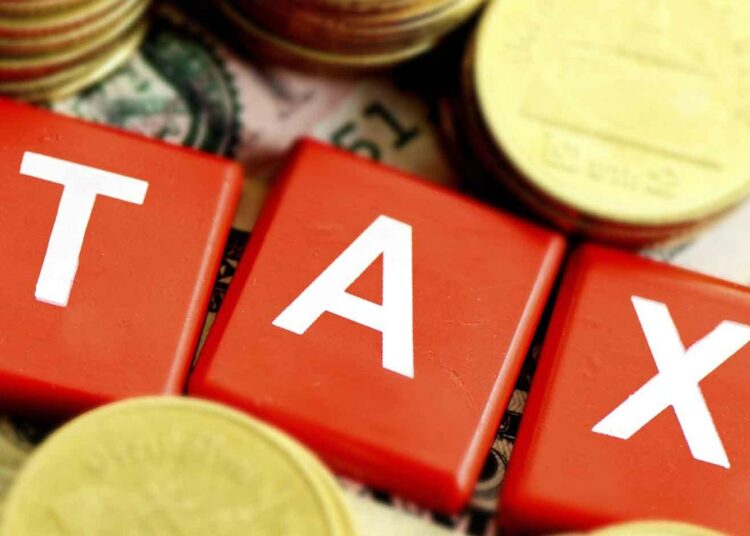Oxfam has unveiled a staggering wealth gap in Nigeria, warning of a potential social crisis without urgent action.
Two comprehensive studies, “Income and Wealth Inequality in Nigeria: Trends and Drivers” and “Taxing the Rich: Fair Tax Monitor,” expose profound inequalities.
The findings reveal that over 99% of Nigeria’s wealthiest citizens evade or avoid taxes, leaving millions in poverty.
Oxfam’s country director in Nigeria, John Makina highlighted the alarming contrast between the super-rich, who continue to amass wealth, and the millions struggling to afford their next meal.
“Complex tax laws and a lack of transparency allow the wealthy to avoid their fair share of taxes, depriving the country of essential revenue for social protection and inequality-reduction programs,” he said.
Despite being the fourth-largest economy in Africa, Nigeria has a wealth Gini coefficient of 35.1, ranking it among the most unequal countries in West Africa. The report finds that the wealthiest Nigerians could spend N1 million daily for 42 years without exhausting their fortunes, while nearly 70% of Nigerians face hunger, disproportionately affecting women and children.
Oxfam urges the Nigerian government to adopt progressive wealth taxation, increase social investment, and implement pro-poor policies to bridge the growing wealth gap. Implementing a 1% wealth tax on the nation’s richest individuals could generate over $7.5 billion annually, significantly enhancing the government’s capacity to fund healthcare, education, and rural development.
The report underscores that without immediate action, Nigeria’s inequality crisis could lead to widespread social unrest.
WAF-Oxfam International Regional Director Assalama Sidi emphasized Nigeria’s economic status’s profound impact on the entire African continent, stating, “When Nigeria rises, Africa rises,” but warning that “when things go wrong in Nigeria, the whole of West Africa, if not all of Sub-Saharan Africa, is impacted.”
Sidi noted that despite being Africa’s fourth largest economy, Nigeria is home to a significant portion of the world’s poorest people, underscoring the urgency for change.
She highlighted that rising inequalities in Nigeria are not irreversible; they hinge on political will and decisive action. Alarmingly, only 5 to 7% of Nigeria’s national budget is allocated to critical social services like education and healthcare, disproportionately affecting women, children, and vulnerable populations.
She outlined the complex layers of inequality permeating Nigerian society, including disparities between the wealthy and the average citizen, gender-based inequalities, and regional divides between the North and South.
Most concerning, she noted that many poor and unemployed youths reside in northern Nigeria, creating a breeding ground for insecurity and potential recruitment into extremist groups.
Sidi also linked food security to overall insecurity, noting that safety concerns have driven people from their farms, exacerbating food shortages across Nigeria and neighboring countries.
Furthermore, she highlighted the plight of women, who, despite their hard work in agriculture, earn only 77 cents for every dollar earned by men for the same labour.
Sharing a poignant story, Sidi recounted the struggles of a widow in northern Nigeria, who resorted to foraging for leaves to feed her six children due to poverty.
Her plight gained attention after a wealthy Nigerian man intervened to support her family, illustrating the impact of individual action and responsibility.
While the statistics paint a bleak picture, Sidi concluded by urging policymakers to act decisively.
“The world is watching Nigeria, and it’s time for the country to lead by example,” she stated.
Dr. Hussain Abdul of Care International commended Oxfam for releasing the 2024 version of the inequality report in Nigeria. He expressed gratitude to Asala for her efforts and acknowledged John for his excellent work.
“Inequality in Nigeria is a critical issue, but it’s one we often fail to address seriously. Many believe that those at the top earned their place through hard work, while those at the bottom are punished for their laziness. Unfortunately, this is not the full story. The structure of our society and the way policies are designed favor certain groups while disadvantaging others.”
Abdul emphasized that inequality in Nigeria is historically rooted, noting that over the last 40 years, economic policies—from the structural adjustment programme of 1986 to current reforms—have been crafted to benefit the rich while deepening poverty among the poor.
He pointed out that urban-centered government policies further widen the inequality gap, particularly in rural areas. Investments in overhead bridges and airports often benefit limited populations, leaving rural areas without basic infrastructure like culverts to connect markets. States compete to build legacy projects like airports, yet only a few people—mainly private jet owners and governors—use these facilities. For instance, new airports are being built in places like Jigawa, where the distance between airports is less than 150 kilometers. This is occurring in unstable states like Zamfara, where resources could be better utilized to address violent conflicts and poverty.
These misguided policies perpetuate economic division, leading to violent conflicts, reduced food production, and unsafe living conditions for many. Abdul commended Oxfam for consistently publishing inequality reports.
“This report doesn’t just highlight the challenges but also provides robust recommendations for change. While these recommendations are not new, they are crucial. Advocacy is about persistence, and we must continue to push for policy revisions.”
He warned that failing to revise our approach undermines ourselves, our country, and the entire region. “Nigeria plays a crucial role in Africa, and we cannot ignore the fact that while we boast of having the richest man in Africa, we also harbor some of the poorest. The Gini coefficient—a measure of inequality—reflects the vast gap between the richest and the poorest in our society.”
The executive director of the Civil Society Legislative Advocacy Centre, Auwal Rafsanjani, commended Oxfam for its ongoing advocacy and urged the organisation to continue raising awareness about critical issues.
He stated, “This is the foundation upon which our country can overcome various challenges.”
Rafsanjani mentioned that a supplementary report would be released soon but highlighted key concerns regarding Nigeria’s increasing inequality.
He attributed the rise in inequality to the lack of comprehensive development frameworks.
“In the past, we had development frameworks,” he noted, but since the return to democracy, Nigeria has only implemented one. This absence of planning hinders policymakers and legislators from addressing the populace’s needs, resulting in numerous projects being abandoned after funding is allocated, leaving thousands incomplete across the country.
Rafsanjani also criticized rampant corruption, calling it the “liberalization and democratization” of theft.
He pointed out that resources intended for essential services such as water, education, and healthcare are often diverted or stolen, exacerbating inequality by denying access to those who should benefit from these resources.
Connected Development (CODE) founder Hamzat Lawal expressed that the situation is a disaster waiting to happen.
“When citizens cannot afford or access basic needs, they’re pushed to the wall. And when people are pushed to the wall, they react. I’m a young person, and we all know what young people are going through in this country.”
He recalled a recent protest that almost brought the country to its knees, asserting that if there were equality, young people would not feel the need to take to the streets.
He shared a story from Bauchi State about a young girl who dropped out of school because her family could not afford the N3,000 (about $2) required for a term. “That is one child out of many, in one state out of 36. The cost of food is rising, but income is not rising with it.”
Lawal warned that if we don’t act, it will burn all of us. “Because a poor and hungry person cannot differentiate between who is in government and who is Oxfam, CISLAC, or Connected Development. Oxfam has brilliantly used data and evidence to bring this issue forward. To our media friends and partners, we must amplify this.”
He called on the government to remember that politics is about public service and questioned why citizens are not enjoying the dividends of democracy.





